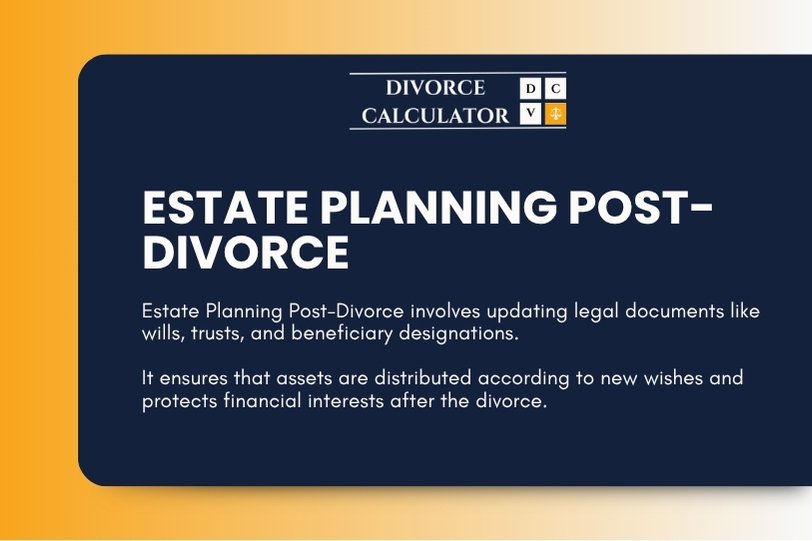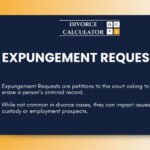Divorce affects more than a relationship—it can leave lasting impacts on our financial and legal affairs. Often, one of the most overlooked yet critical areas to revisit is estate planning. We must ensure that our wills, trusts, and beneficiary designations reflect our new circumstances and wishes post-divorce.
If we neglect to update these documents, our assets could go to unintended individuals or create unnecessary complications for our loved ones. By addressing estate planning after a divorce, we can protect ourselves and provide clarity for our families during future life events.
Taking timely steps helps us affirm control over our legacy and prevents costly, stressful disputes down the line.
Key Takeaways
We need to review our estate plans after a divorce. This helps ensure our wishes are accurately reflected and our assets are distributed according to our new circumstances.
It’s essential to update wills, trusts, and beneficiary designations on life insurance policies and retirement accounts. Old documents could unintentionally benefit a former spouse if not changed.
We should check powers of attorney and healthcare directives. Naming someone we trust is important for making financial and medical decisions if we’re unable to do so ourselves.
A simple checklist can help us stay organized:
- Update key documents
- Review titling of joint assets
- Communicate changes to relevant parties
Paying attention to state laws is critical. Each state may have different rules about how divorce affects estate planning documents. Seeking legal advice allows us to avoid potential errors and protect our interests.

Why It Matters In Divorce
When we go through a divorce, our financial and legal landscapes change significantly. Estate planning helps us adjust to this new reality, ensuring our assets and wishes reflect our current circumstances.
Many of us forget that beneficiary designations on retirement accounts, life insurance, or payable-on-death accounts do not automatically update after a divorce. If we neglect to revisit these, our ex-spouse could unintentionally inherit our assets.
Key reasons to update estate plans post-divorce:
- Remove or adjust ex-spouse’s roles (executor, trustee, or power of attorney)
- Protect children’s inheritance
- Align our will and trusts with new family dynamics
| Common Documents to Review | Why It’s Important |
|---|---|
| Will | Names guardians, heirs |
| Power of Attorney | Assigns someone we trust |
| Trusts | Manages property distribution |
| Life Insurance | Pays benefits to our loved ones |
Updating these documents also helps us prevent legal disputes among family members and ensures that our current wishes are honored. The changes from divorce can be complex, so taking the time to review our estate plan is essential.
Real-Life Examples
Let’s consider a case where we forgot to update our beneficiary designations after divorce. Years later, our ex-spouse was still listed, and certain assets unintentionally went to them instead of our children.
In another situation, we worked with a client who didn’t revise their power of attorney. As a result, their former spouse still had the authority to make critical financial and medical decisions.
A common challenge appears when we neglect to revise our will. For instance:
| Document | Before Divorce | After Divorce |
|---|---|---|
| Will | Ex-spouse inherits | Children inherit |
| Retirement Account | Ex-spouse is beneficiary | Sibling is beneficiary |
When we help people set up trusts, we occasionally see trusts that name both an ex-spouse and current spouse as beneficiaries. This often leads to legal disputes and delays in asset distribution.
We also see joint real estate deeds that are not updated after divorce. That oversight can complicate the sale or transfer of property later on.
By regularly reviewing all estate planning documents after a divorce, we minimize these risks and ensure our wishes are clearly reflected.
How States Handle Estate Planning Post-Divorce
State laws differ significantly when it comes to modifying or invalidating estate plans after a divorce. We must pay close attention to automatic revocation provisions, beneficiary designations, and how courts interpret property rights.
NY
In New York, divorce has a direct impact on estate planning documents. Wills, trusts, and beneficiary designations for life insurance or retirement accounts are automatically modified once a divorce decree is finalized. Former spouses are generally treated as if they predeceased the testator, effectively revoking their roles as executors or beneficiaries.
Key points in NY:
- EPTL 5-1.4 controls revocation for wills and trusts.
- Divorce also voids gifts and fiduciary appointments made to the ex-spouse.
- Non-probate assets, like joint bank accounts, are typically severed by law.
- It’s important to review and update all documents, as not every asset is covered automatically.
For those with children, New York courts may appoint alternate guardians and trustees if the original plan named a now-former spouse. Double-checking all beneficiary designations on insurance and retirement plans remains crucial, since some employer-based plans may require additional steps.
CA
California adopts a comprehensive approach through its Probate Code § 6122 and related statutes. Once a divorce is finalized, ex-spouses are automatically removed as beneficiaries of wills, revocable trusts, and powers of attorney, unless the documents clearly say otherwise or the couple remarries.
Highlights for CA residents:
- All personal representative and trustee appointments for a former spouse are revoked.
- Joint tenancy property automatically converts to tenancy in common.
- California law treats a surviving ex-spouse as predeceased for these purposes.
- ERISA preemption may limit the state’s automatic changes for federally regulated plans.
We need to specifically update paperwork for all life insurance, IRAs, and benefit plans. For community property, divorce finalization also changes how assets are distributed, as those assets are divided, not automatically inherited.
TX
Texas law, under Estates Code § 123.001 and § 123.151, provides that divorce revokes all provisions in a will or trust favoring a former spouse. This revocation also applies to financial and medical powers of attorney unless the documents state otherwise.
Texas estate planning post-divorce:
- Transfers-on-death and payable-on-death accounts naming a former spouse are revoked.
- Beneficiary designations for non-probate assets may need manual updates if covered by federal law.
- Ex-spouses lose the right to serve as executor or trustee under a previous estate plan.
It is our responsibility to review all accounts and title documents. Texas courts do not automatically update all assets, particularly those governed by federal rules or out-of-state property.
FL
Florida Statutes Section 732.507(2) automatically revokes any provision in a will or revocable trust that benefits a former spouse. The rule also applies to non-probate transfers, like life insurance, payable-on-death accounts, and retirement plans.
Key features of FL law:
- If a will, trust, or beneficiary designation names an ex-spouse and no update is made post-divorce, Florida law acts as if the ex-spouse died before the decedent.
- All fiduciary appointments (executor, trustee, guardian) of a former spouse are automatically void.
- ERISA plan assets can still go to an ex-spouse unless the account holder changes the designation directly.
While the law covers most estate planning needs, we must manually change beneficiary designations on many financial instruments. Florida courts have no discretion to enforce revoked provisions for ex-spouses, regardless of other circumstances.
Tips If You’re Dealing With Estate Planning Post-Divorce
We should begin by reviewing and updating our wills, trusts, and any beneficiary designations. Divorce may not automatically remove an ex-spouse as a beneficiary.
It’s essential to update our powers of attorney and healthcare directives. These forms often list our former spouse as a decision-maker, which may no longer be appropriate.
Let’s review property ownership and titles. Any jointly owned assets, such as real estate or vehicles, should reflect the changes in marital status.
We should create an updated inventory of our assets and debts. This step ensures all estate documents accurately reflect our new situation.
Key Actions Checklist:
- Update will and trust documents
- Change beneficiaries for life insurance, retirement accounts, and pay-on-death bank accounts
- Revise power of attorney and healthcare proxy forms
- Confirm titles on homes, cars, and other assets
- Review guardianship provisions for minor children if applicable
Working closely with a qualified estate planning attorney helps us ensure our documents comply with current statutes and properly reflect our wishes.
We may also want to consider our tax situation, as divorce can impact estate and gift tax planning.
Lastly, we should notify key contacts, such as our financial advisor and insurance representatives, about these changes. This keeps everyone informed and prevents future misunderstandings.
Frequently Asked Questions
We must review our will, trusts, powers of attorney, and beneficiary designations after divorce to ensure our intentions are clear and legally effective. Child custody, support obligations, and insurance policies often require special consideration in our estate plan.
How should a will be updated following a divorce?
We should draft a new will after divorce to ensure our former spouse does not unintentionally inherit from our estate. Naming new executors and guardians for minor children is important. State laws may automatically revoke some provisions favoring a former spouse, but creating a new document is the safest approach.
What happens to revocable trusts in the event of a divorce?
After divorce, we need to review and update the terms of any revocable living trusts. If our ex-spouse is named as a trustee or beneficiary, we must revise the trust to reflect our changed wishes. Some states consider gifts to an ex-spouse under a revocable trust as revoked, but this is not guaranteed.
Which estate planning documents should be revised when marital status changes?
We should update our will, revocable trusts, powers of attorney, health care directives, and any designation forms following a divorce. This reduces the risk of unwanted inheritances or decision-making authority. Each document must match our current wishes and comply with state law.
Are there special considerations for estate planning with regard to child custody and support post-divorce?
When planning our estate after divorce, we must account for child custody arrangements and ongoing support obligations. Appointing guardians for minor children and ensuring trusts are properly structured for their benefit is essential. Court orders about custody and support may need to be addressed in our documents.
How does a divorce decree impact beneficiary designations?
A divorce decree may require us to maintain certain beneficiary designations, such as for retirement accounts or life insurance. However, we should still review and update all beneficiary forms to ensure compliance. Failing to do so could result in disputes or unintended distributions.
What are the implications of divorce on life insurance policies intended for estate planning?
We should check whether the divorce decree mandates that our ex-spouse remain as beneficiary on specific life insurance policies, particularly for child support or alimony. If there are no such requirements, updating beneficiary designations allows us to redirect benefits according to our new wishes. Reviewing policy ownership and trust arrangements is also crucial.



